Three FMDS Faculty and three staff attended the recently concluded 7th East Asian Consortium of Japanese Studies (EACJS) held in Tokyo, Japan from 3 to 5 November 2023 at the Tokyo University of Foreign Studies (TUFS).
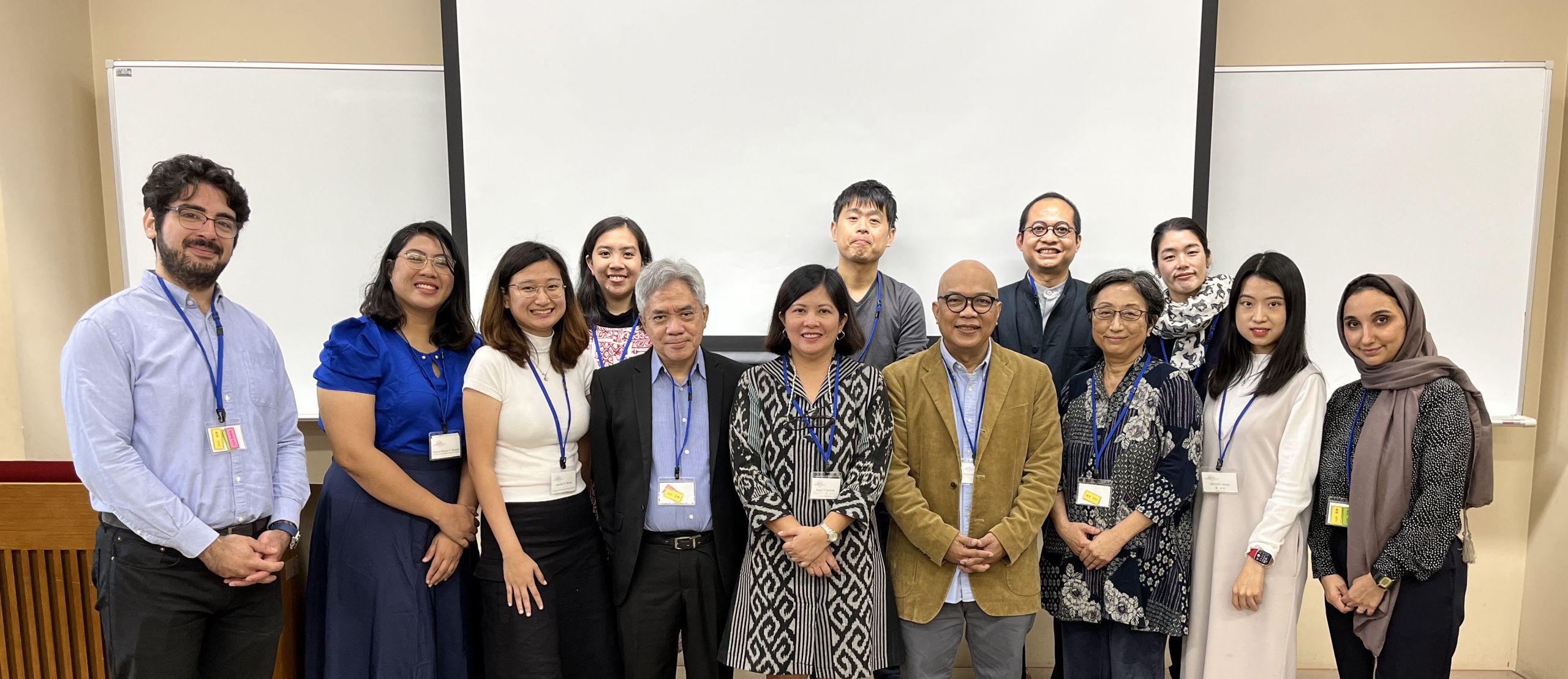
The Alitaptap Community Currency Team of the Faculty of Management and Development Studies composed of Dean Joane V. Serrano, Asst. Prof. Cesar Z. Luna and Dr. Ferdinand C. Maquito together with Research Assistants Ms. Noreen Dianne Alazada, Ms. Janele Ann C. Belegal and Ms. Janelle G. Ebron presented in the panel on “Community Currency: Learning from Japan.”
Community Currency as a Tool for Local Sustainability
Drawing inspiration from Japan’s long history with community currencies (CCs) and Local Exchange Trading Systems (LETS), the first presentation by Dean Serrano and Ms. Ebron investigates the concept of a Community Currency (CC) in Laguna, referencing Japanese experiences as benchmarks. Community currencies are locally issued, community-managed alternatives to national currency designed to localize economies, encourage mutual support, and reduce inequality.
Japan provides a valuable reference point, having seen an estimated 792 CCs issued since the early 2000s, including notable examples such as Yorozu-ya in Fujino. These initiatives arose in response to concerns over economic growth that often deepened social disparities, highlighting the role of CCs in fostering social cohesion and sustainable livelihoods.
In the Philippines, the Alitaptap Community Currency serves as a pioneering local example. Officially launched on 11 September 2023, as one of the components of UPOU’s Sustainability Campus – Living Laboratory (SiALLC), Alitaptap CC facilitates the exchange of goods and services among university stakeholders. Users have reported tangible benefits such as the ability to access produce without cash and to build a culture of reciprocity within the campus community—a “give and take relationship” that strengthens social ties while promoting sustainable practices.
Local Exchange Trading Systems (LETS)
The next presentation by Asst. Prof. Luna and Ms. Belegal examines the potential of Local Exchange Trading Systems (LETS) in Laguna, again with comparative insights from Japan. LETS, first developed in Canada in 1983, function as mutual credit networks where members trade goods and services using a locally managed accounting system rather than cash. The system’s primary goal is to retain value within the community, enhance resilience, and build social capital.
Historically, LETS programs gained traction during economic downturns, but many struggled due to limited economic impact, administrative challenges, and member opportunism. Japan, however, developed more resilient forms such as the “Passbook Communities,” which maintain trust and accountability through meticulous record-keeping and community engagement.
One prominent model is the Fujino LETS, established in 2009, which remains active and fosters strong local relationships through a simple yet effective passbook system. The Alitaptap CC draws inspiration from this model, using a similar passbook mechanism to track exchanges and cultivate mutual trust among members—adapting a global concept to a university-based community context.
Bridging Tradition and Digital Innovation
The third study, presented by Dr. Maquito and Ms. Alazada, explored the potential of an electronic local currency in Laguna through a comparative lens. The discussion moved from the specific case of Japan’s Yorozu CC that uses a six-column passbook format to record detailed transactions into broader reflections on how these principles could inform digital innovations in the Philippines.
In Japan, passbook-based community currencies have remained sustainable due to their low maintenance costs, minimal supervision, and cultural alignment with norms of reciprocity and community trust. Similarly, the Alitaptap CC pilot at UPOU, now with 45 active members, reflects these strengths. Early trends show that participants favor service-based exchanges, emphasizing collaboration, skill-sharing, and community resilience over material trade.
As a response to the presentations, Dr. Jakfar Idrus (Discussant) shared the case of Indonesian community currencies and their integration within local and indigenous communities across Indonesia. He mentioned that there are currently 14 community currencies in operation in the country. A distinctive feature of these systems is their creative use of wooden bills, which reflects local culture and adds a tangible, symbolic value to community exchange. Dr. Kenichi Kurita, the adviser of the Alitaptap CC also shared during the discussion.
Together, these studies underscore the promise of community-driven economic systems as mechanisms for localized sustainability, inclusive participation, and social innovation. By drawing lessons from Japan’s long-standing practices and adapting them to the Philippine context, initiatives like Alitaptap are paving the way for a more resilient, cooperative, and sustainable local economy—one that values people, relationships, and shared growth above profit alone.
Written by: Noreen Dianne S. Alazada • Edited by: Larry N. Cruz

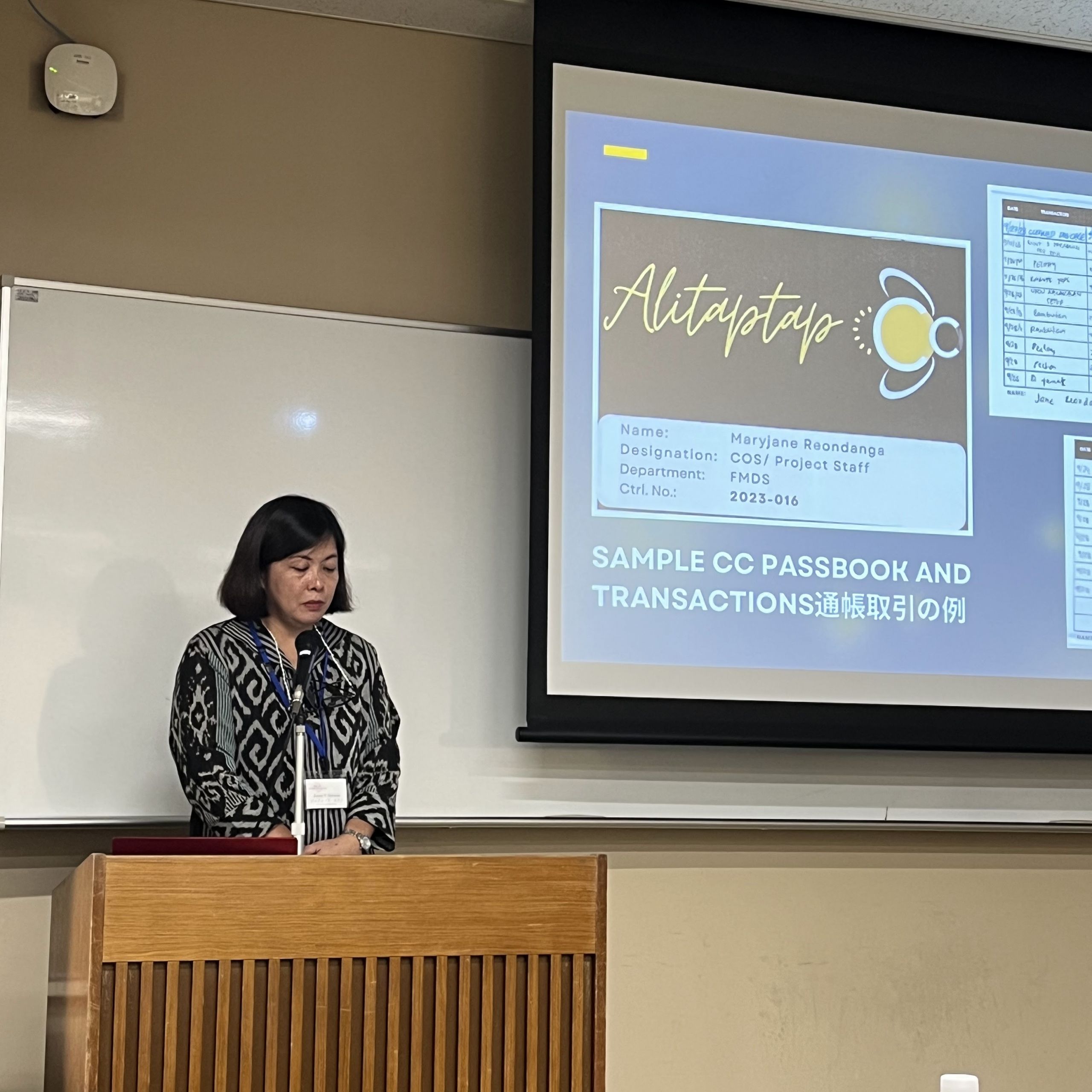
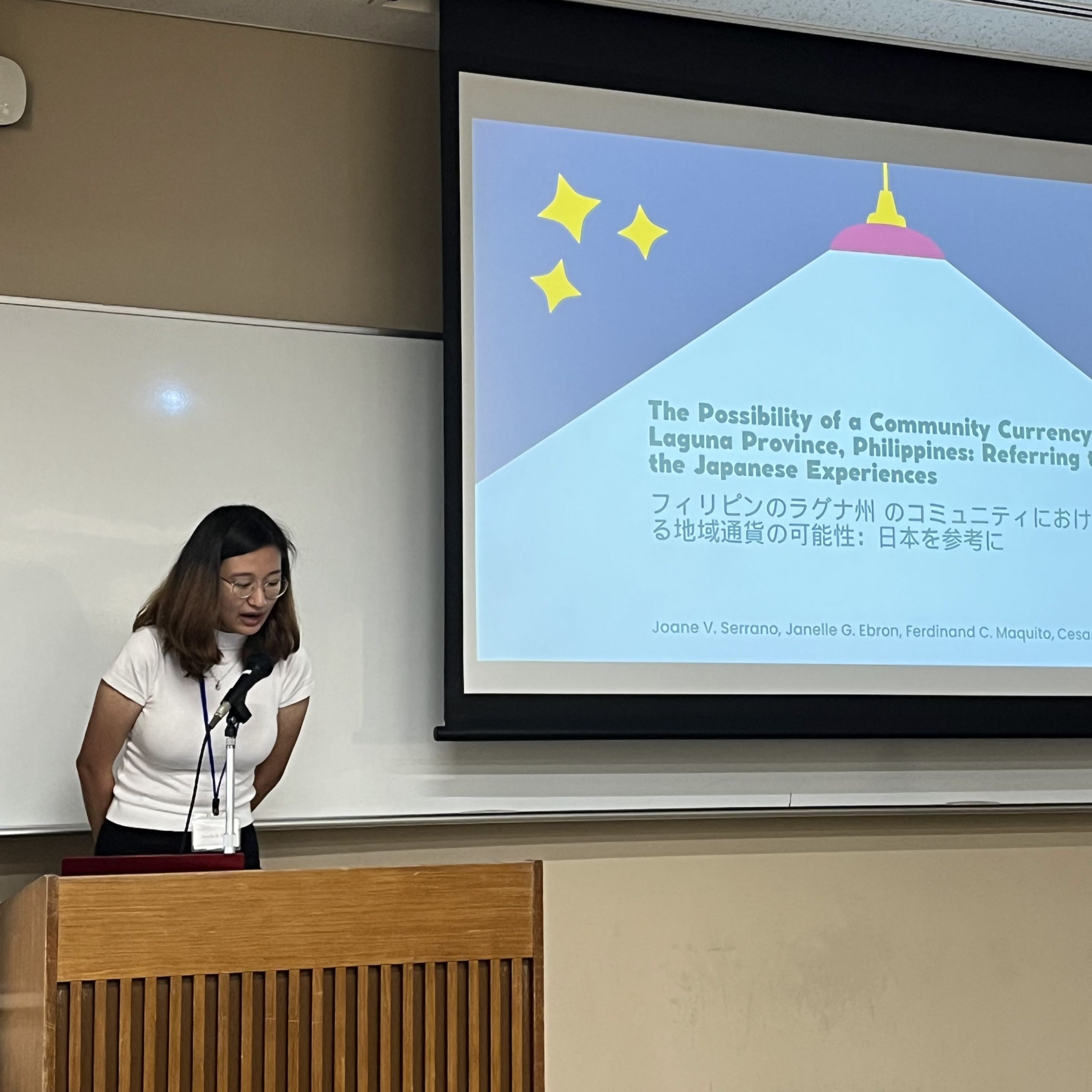
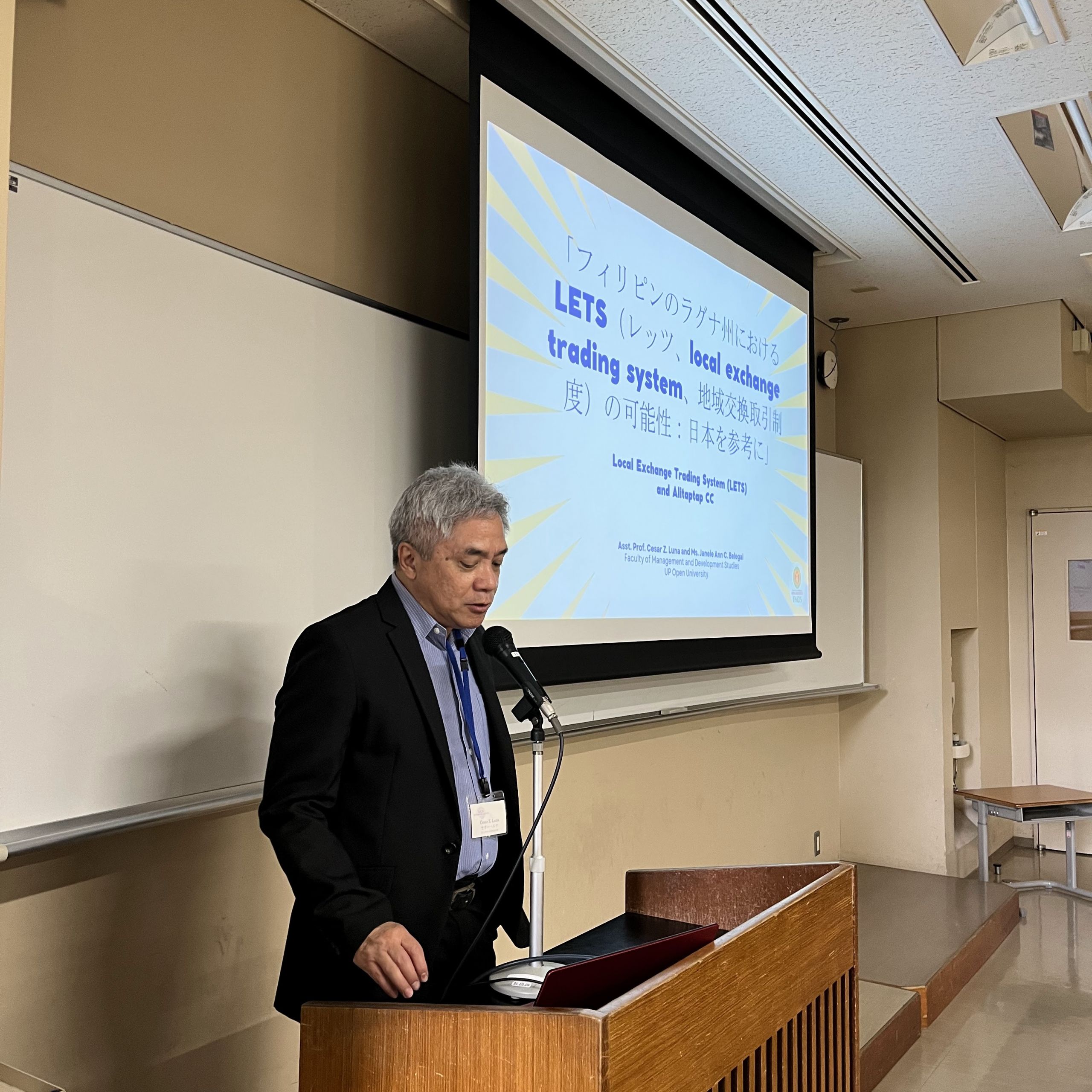
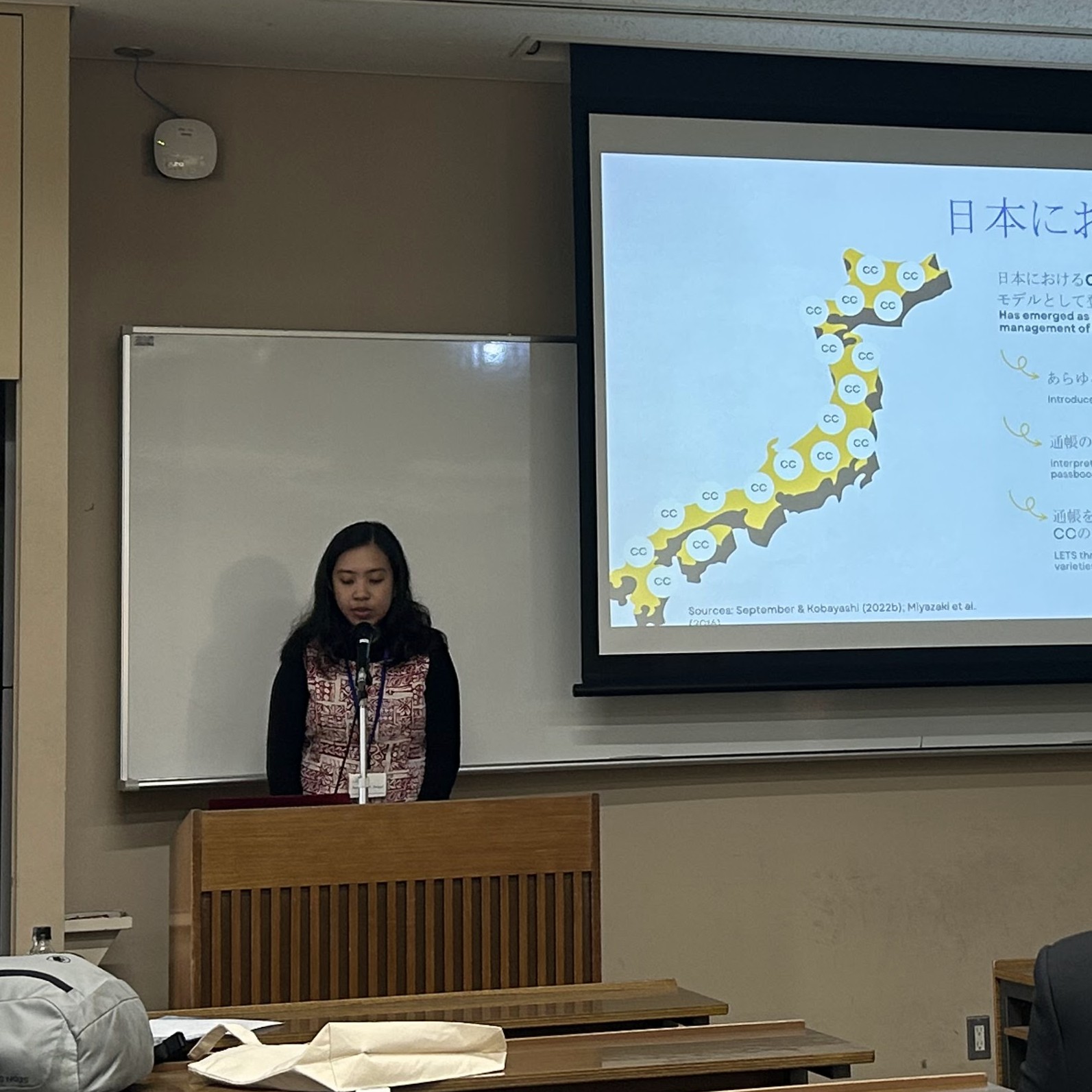
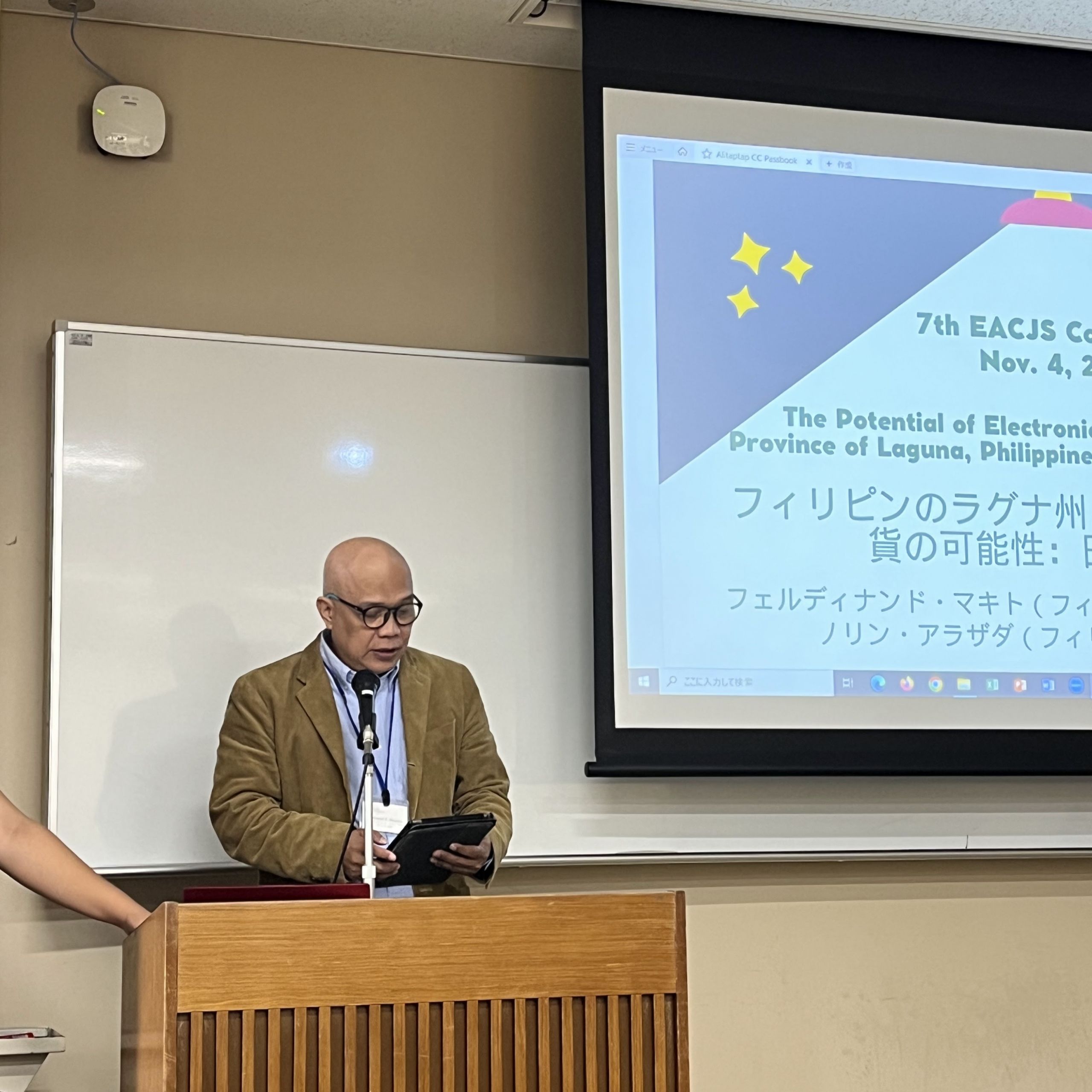
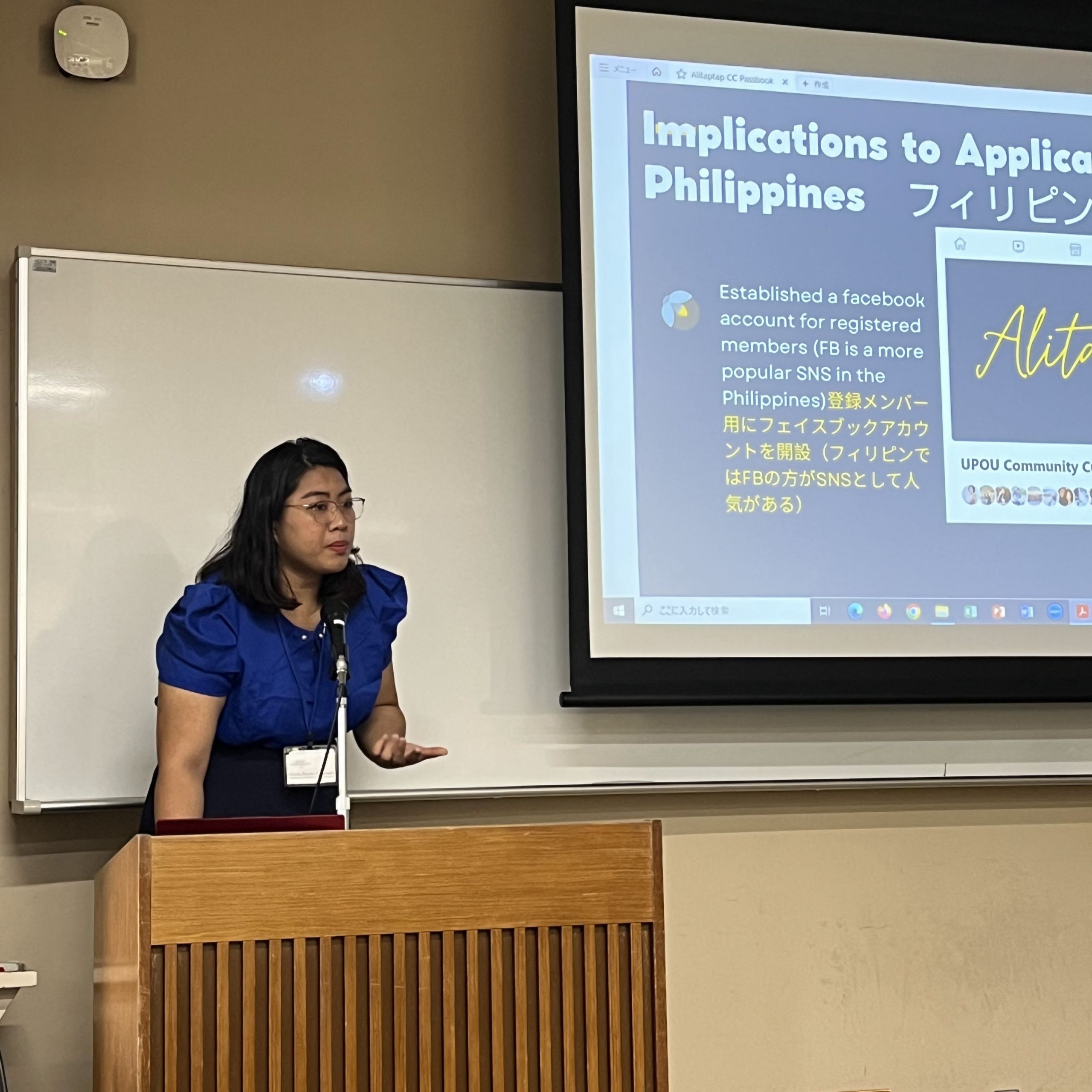
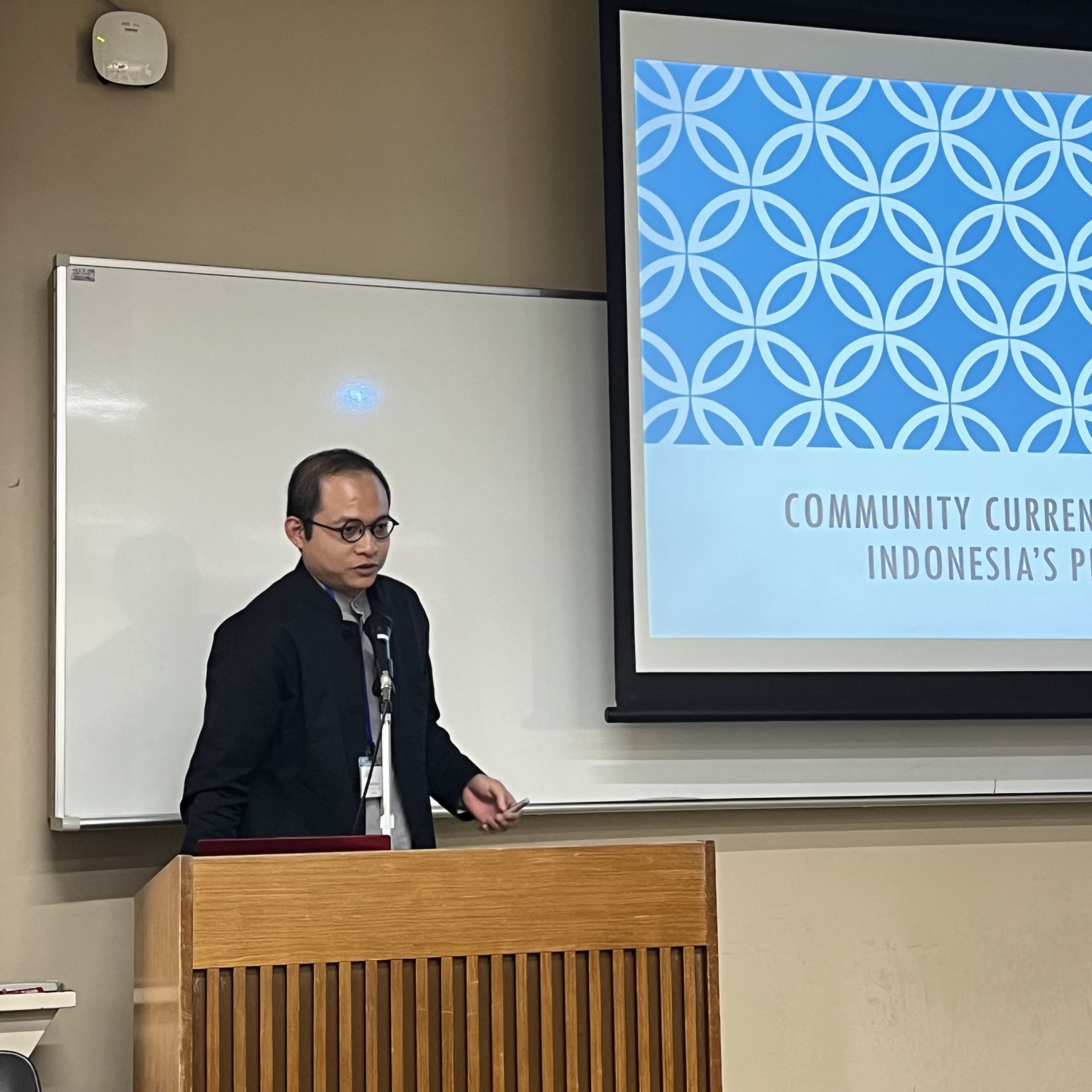
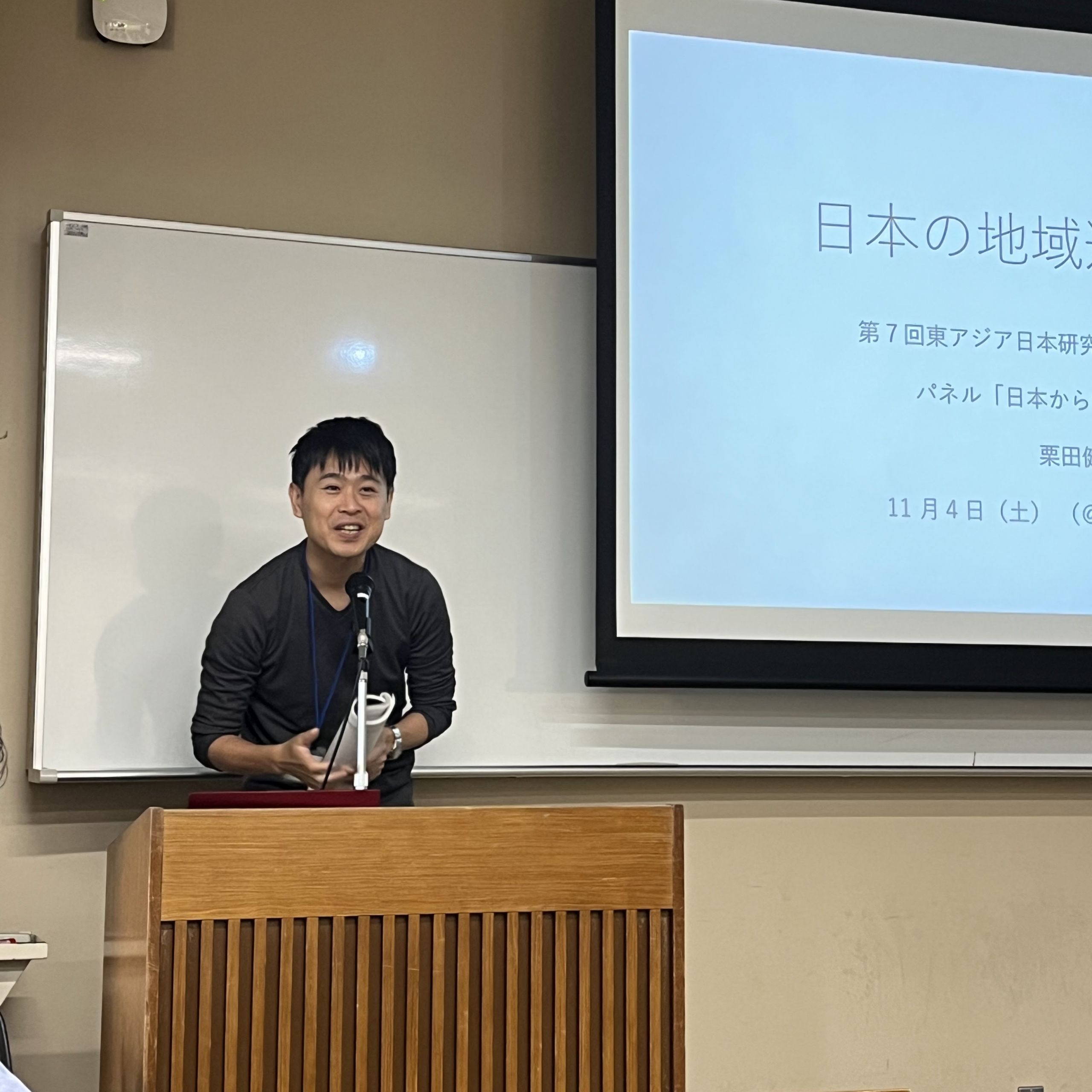
















FMDS Socials